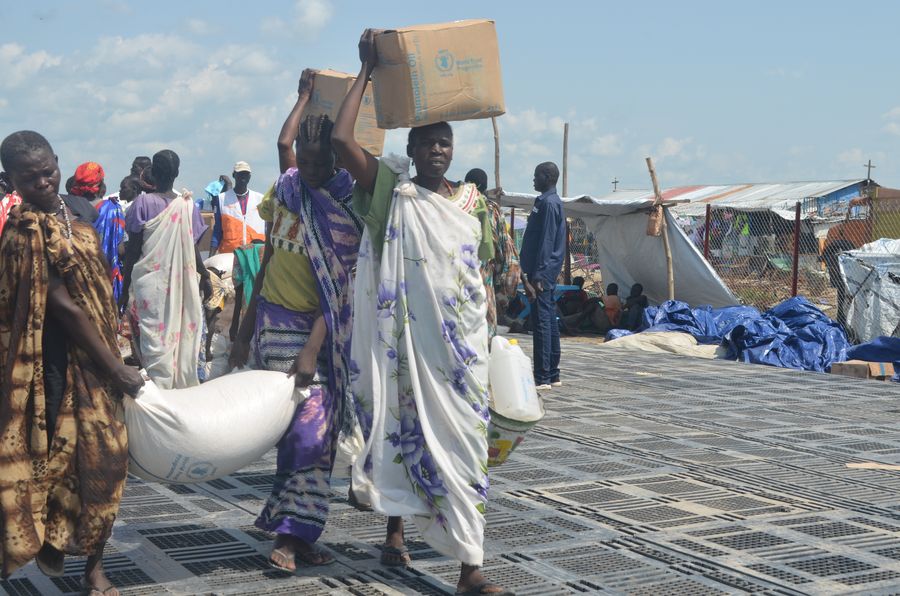
Internally Displaced Persons (IDPs) carried food rations donated by the World Food Program (WFP) at the Malakal Protection of Civilians site in Malakal, South Sudan, June 19, 2019. (Xinhua/Denis Elamu)
South Sudan is facing a food deficit of 700,000 metric tonnes amid devastation by floods in most parts of the country since July. A UN report showed 6.3 million people suffer from hunger, with the FAO calling for more food aid and increased investment in the agricultural sector to boost production.
JUBA, Nov. 20 (Xinhua) -- The Food and Agriculture Organization (FAO) of the United Nations has warned South Sudan is currently facing a food deficit gap of 700,000 metric tonnes amid devastating floods in most parts of the country since July.
Meshack Malo, FAO country representative said the current floods that have devastated parts of the country will spell more doom to the youngest nation amid the lean season where farmers are expected to be harvesting produce.
"The current floods have definitely injected fears on the initial estimates of food-insecure people. Definitely the number will increase with FAO forecast showing 74,157 hectares of cultivated land damaged with an estimated loss of 72,611 tonnes of grain in the flood-affected areas," Malo told Xinhua in an interview on Tuesday in Juba.
An estimated 908,000 people including internally displaced persons (IDPs), refugees and host communities have been either displaced or affected by flooding due to seasonal heavy rains in the northern parts of South Sudan.
The floods have affected 32 counties in Jonglei, Upper Nile, Eastern Equatoria, Northern Bahr el Ghazal, Unity and Lakes regions which has exacerbated the already worsening food insecurity situation in South Sudan.

Humanitarian workers loaded relief food and other items on the World Food Program barges in Malakal port in Malakal, South Sudan, June 20, 2019. (Xinhua/Denis Elamu)
Malo disclosed that more food aid was needed besides increased investment in the agricultural sector to alleviate the food deficit.
"Given the natural resource and climatic endowment of South Sudan, it can exist from food aid through investment in the production sector. This is definitely considering keenly the nutritional and sustainable agriculture production," he said.
According to the UN Food Security Classification report issued in September, some 6.3 million people are threatened by hunger in South Sudan.
Meshack Malo, FAO Representative in South Sudan, said many people continue to suffer from hunger and malnutrition despite the country being fertile.
South Sudan descended into conflict in December 2013 after President Salva Kiir sacked his deputy Riek Machar, leading to fighting between soldiers loyal to respective leaders. ■



